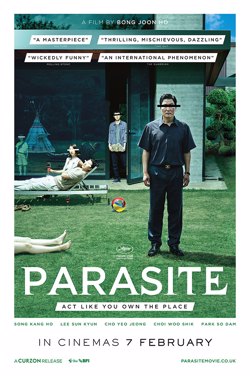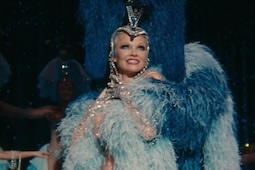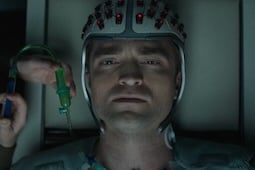
South Korean cinema is poised to make not one but two historic firsts at this year's Academy Awards. That's because critically lauded new black comedy Parasite has been nominated for both Best Film and Best International Feature Film, the first-ever South Korean movie to receive accolades in either category.
It's from director Bong Joon-ho, one of the leading lights of South Korean cinema, having helmed the acclaimed likes of Memories of Murder, The Host and Snowpiercer. Ostensibly, Parasite is the story of a poor family that infiltrates the lives of their wealthier counterparts – but there's nothing ordinary about how this remarkable, funny and shocking movie plays out.
Parasite already went down a storm during our Cineworld Unlimited screening (discover the reactions here). And it's set to win over an even larger audience when released in the UK on the 7th of February.
In anticipation, we're revisiting seven trendsetting South Korean movies, all of which confirm the country's status as a boundary-pushing hotbed of filmmaking talent.
1. Oldboy (2003)
Park Chan-wook's savagely violent revenge thriller is credited with kickstarting the 'South Korean New Wave' in the early 2000s. Bold in style and unpredictable in tone, it's the intense story of imprisoned man Oh Dae-Su (Choi Min-sik), who is released from captivity after several years and dedicates himself to tracking down those responsible.
Min-sik's feral performance is the driving force of the movie, whether he's taking a hammer to his enemies in a stunning, side-on fight scene, or chowing down on a live octopus in the film's most notorious sequence. Yet the film has far more to offer than just shock tactics; the climax unspools as the most appalling kind of tragedy, with Dae-su facing a dreadful reckoning from his past.
Chan-wook's delicate interweaving of past and present all of a sudden clicks with horrible clarity, underlining the film's emotional impact and sincerity in the face of extreme horror.
2. Spring, Summer, Autumn, Winter... And Spring (2003)
South Korean cinema may be famous for its more extreme and gory tangents, but it also has the capacity for lyricism and beauty. Kim Ki-duk's lovely Spring, Summer, Autumn, Winter... And Spring is a case in point, an episodic look at a young Buddhist monk's growth to manhood.
Ki-duk drinks in the breathtaking surroundings of the lakeside monastery where our central character grows up, and, as per the title, the environment changes in line with the seasons. The beauty of the landscape and its attendant changes also mirrors the emotional turbulence in our unnamed protagonist, as childhood idealism blooms before being replaced by the budding awareness of young love.
Anyone seeking out a more sensitive drama from South Korea is encouraged to watch this.
3. The Good, The Bad, The Weird (2008)
Director Kim Jee-woon is another of South Korea's pre-eminent filmmakers. His movies vary wildly in approach, from the horrifically violent I Saw The Devil to this quirky riff on classic Western conventions.
As the title implies, it's a subversion of classic Sergio Leone tropes, showcasing an awareness of the genre while also grafting on plenty of characteristic Korean oddness. The film is the story of three men, two of them outlaws and the other a bounty hunter, on the search for treasure in 1940s Manchuria. (The name refers to an archaic term for several overlapping regions in north-east Asia.)
The Good, The Bad, The Weird proved a big hit at the 2008 Cannes Film Festival, and went on to claim several prizes at additional film festivals worldwide. The movie was critically acclaimed and secured Jee-woon's reputation: Film4 raved, "Wild, crazy and packed with memorable moments, this South Korean homage to the western may not be thought-provoking or particularly deep, but it's also one of the most genuinely fun and inventive movies to hit the screen in quite some time."
4. Train to Busan (2016)
The zombie movie has been eviscerated and reconstituted more than once – and not just in Hollywood. One of the boldest undead movies of recent times is the rip-roaring Train To Busan, which in typical South Korean style, has got a lot more on its mind than crass gore effects.
The film is more of a blackly comic satire with zombies at the centre; in fact, the real enemy is very often the human variety, found occupying the eponymous commuter train as a pesky flesh-eating outbreak begins to threaten the entire world. In that sense, it owes something of a debt to Bong Joon-ho's Snowpiercer, in which human survivors occupy a class-divided train in the wake of a new ice age.
Train to Busan was huge commercial success, eventually grossing upwards of $80 million worldwide against a meagre $8.5 million budget. By turns very funny and very nasty, it's held up as a pioneering example of what South Korean cinema is capable of.
5. The Wailing (2016)
One simply doesn't come to a South Korean movie for the predictability. This spine-chilling tale of terror in a provincial mountain village morphs and mutates into several different entities throughout its lengthy running time, beginning as a body horror/viral outbreak movie, and ending with all manner of superstitious Hoodoo.
Director Na Hong-jin does a brilliant job of keeping the audience off-balance, showing how the villagers and their beliefs are as much of a threat as any external forces. The film is centrally anchored by a terrific performance from Kwak Do-won, playing a policeman whose daughter is threatened by the chaos that engulfs the local community.
Anyone tiring of the predictable conventions of Hollywood horror cinema will likely get a kick out of The Wailing, if only because they'll have no idea where it's going.
6. The Villainess (2017)
Action is another weapon in the South Korean cinema arsenal. And this gripping revenge thriller begins with a belter of an opening sequence: a first-person point-of-view shot of an unnamed assassin laying waste to their enemies. It immersively places you in the headspace of the main character, eventually revealed to be Sook-hee.
Or is she? In this tricksy movie, the past is a constant, nagging presence, and much of the fun comes in the unveiling of Sook-hee's true identity. Director Jung Byung-gil has cited cult French movie La Femme Nikita as an influence, but there's no denying that the style and extreme violence of this movie is a South Korean characteristic.
7. Burning (2018)
If The Wailing is a benchmark for unpredictable South Korean thrillers, then the deeply unsettling Burning runs it close. It's another lengthy and demanding watch, but a steadily engrossing one, as a young, aspiring novelist is ensnared in the mind games set down by his old school classmate and her apparent new boyfriend.
The movie begins as a twist on The Talented Mr. Ripley, a study of social tension between a small group of characters that we're anticipating will erupt into something unpleasant. But the dreamy atmosphere cast by director Lee Chang-dong wrongfoots us at every corner, defying genre and, in a key moment of slow-motion weirdness, seemingly harnessing the spirit of David Lynch.
The movie doesn't so much adapt as expand its source material, author Haruki Murakami's short story 'Barn Burning'. And in the form of the supremely creepy Steven Yeun (The Walking Dead), playing the outwardly smiley yet very sinister Ben, it has one of the most memorable antagonists of recent years.
Parasite is released in Cineworld cinemas on the 7th of February. Don't forget to tweet us your favourite South Korean movies @Cineworld.















.jpg)
.png)






